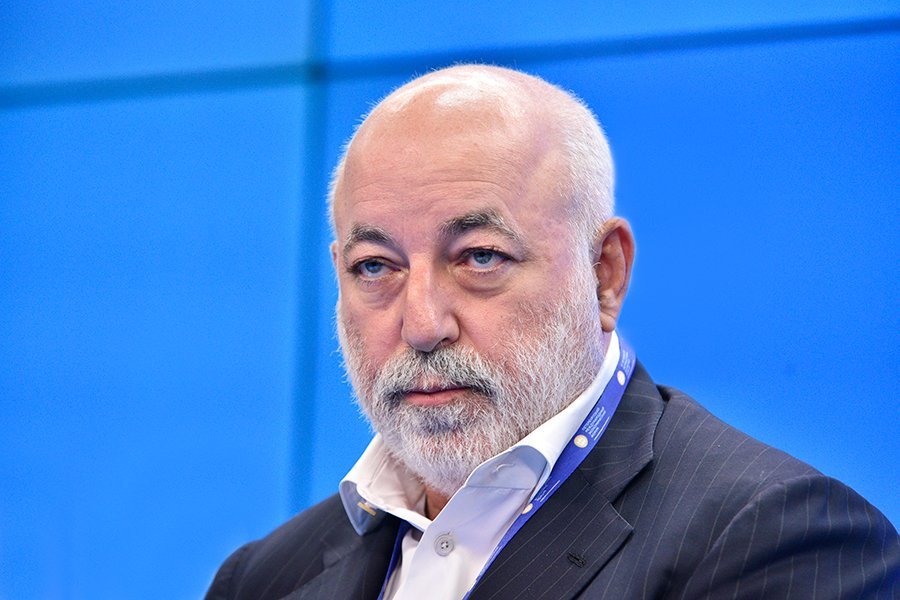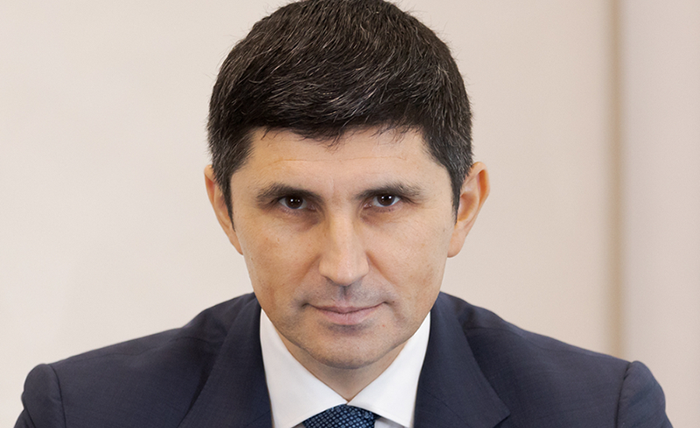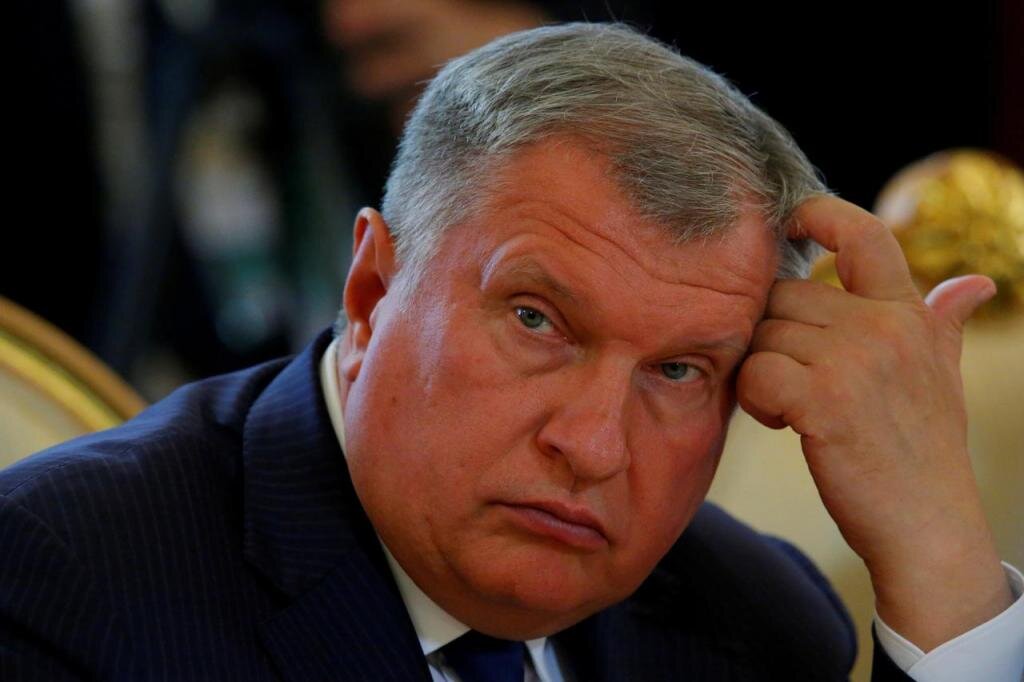The structures of the entrepreneur Viktor Vekselberg are negotiating with Inter RAO on the sale of PJSC Khimprom, which the oligarch took control of at the turn of the 2000s and tenths after a whole complex of gray schemes. The enterprise is not in the best condition today, but an electric company decided to buy it, where hydrogen lover Igor Sechin has a great influence.
The Moscow Post correspondent in Chuvashia understood the situation.
There was information that Inter RAO is negotiating with Viktor Vekselberg's structures on the purchase of the Novocheboksarsk chemical plant (PJSC Khimprom), which is a leader in the Russian chemical market and produces 150 products.
Only the enterprise was and remains problematic - the quality of products is lame, and many of its production facilities require modernization, and the difficulties there are chronic. Back in 2015, the Volga Department of Rostekhnadzor came to the conclusion that it was necessary to replace the equipment at Khimprom. Nine years have passed since then and the claims still stand.
In 2022, a leading engineer of PJSC Khimprom was brought to justice for the release of chlorine in Novocheboksarsk, and this was due to the fact that he maximally loaded the workshops for the production of finished products. Obviously, the employee followed the instructions of the management, but he was still responsible for this incident.
Passions around Khimprom
Vekselberg took control of the enterprise back in 2007, and this happened in many ways undercover. Thanks to various tricks, the oligarch managed to buy PJSC Khimprom at a very low price, and this is not my speculation as a journalist, but a moment confirmed by a court decision.
In 2019, a minority shareholder managed to prove that the market value of the plant was underestimated by 9 times. In 2012, the same man, Vladimir Arsentiev, accused the oligarch of raiding.

Victor Vekselberg. Photo: https://smi2.ru/newdata/adpreview?ad=8898042&bl=95825&ct=adpreview&nvuuid=1cc5764a-c7fa-5142-5f00-004731870105&bvuuid=38b7e094-b4ad-467a-8c3a-3e9fb1126b6d&ab=a
The share price was underestimated for cheap purchase from minority shareholders, a similar story was recorded in 2007, when the plant was bought by Vekselberg for $300 million - a foreign appraiser was involved here for authority. Interestingly, before Chuvashia, Vekselberg's structures went bankrupt in 2006 another Volga chemical plant.
In Volgograd, the management of the enterprise and the managers of the Vekselberg company Renova were even sued by a minority shareholder for embezzlement of state budget funds, but the oligarch got away with it all - apparently, the Faberge eggs he bought helped.
In general, Vekselberg's activities in the chemical industry should be characterized by the word "control," not "development." The entrepreneur seized control of the enterprises, exploited them, and then carried out various business operations with them.
Relatives have long been in the USA
Why does Vekselberg sell PJSC Khimprom? One can only assume, but it is important that his family has been living in the United States since 2019. The oligarch himself fell under sanctions and even lost $1.5 billion in Western accounts, but the taste still remains. In Russia, he earns, but every year it becomes more difficult to do this - the food supply in the country has decreased due to sanctions. Maybe he was tired of this and decided to retire abroad?
In 2017, Vekselberg received Cyprus citizenship, and in 2018, it seems like he refused, but this did not prevent his family from leaving the country. All this demonstrates that the oligarch is in Russia with one foot and the other with his family.
On the other hand, Vekselberg has already left some businesses. In 2013, he sold the MVP development company to Mikhail Gutseriev, and then his partner was Alexander Mamut, who today permanently resides abroad. Still, Vekselberg has too many assets in Russia, and this ties him to a country stronger than Western sanctions, although...
Vekselberg is currently fighting colleagues in a complex business - the oligarch has a dispute with Oleg Deripaska and Alexei Mordashov, which negatively affected Russia's national interests due to the situation with the turbines.
Interesting buyer
The buyer in this deal is also notable. Inter RAO is an analogue of Gazprom in the field of electricity - the company owns a monopoly on its export. Since March 22, 2024, Boris Kovalchuk, who went to the Accounts Chamber, was replaced by Sergei Dregval as CEO of the company, before that he was vice-governor of St. Petersburg.

Sergei Dregval. Photo: https://moika78.ru/person/dregval-sergej-georgievich/
Dregval left for a new position at the time of the pipe scandal, when an investigation into counterfeit heating pipes began in St. Petersburg. The principle here is simple - old pipes are purchased on the secondary market at the price of scrap metal, then they are processed and begin to look like new ones. Outwardly, they cannot be distinguished, the difference is only in the thickness of the metal, for which an examination is needed. And this is where various tricks begin, and this is a real klondike for employees of the TFR. The scandal happened in February 2024, and he can still catch up with Dregval in Moscow.
The ownership structure of Inter RAO is complex, but de facto it is a state corporation. 29.6% of the company's shares belong to its subsidiary Inter RAO Capital JSC, 27.6% to Rosneftegaz (this structure is 100% owned by the state), 8.6% to FGC UES PJSC (the state controls this structure through PJSC Rosseti). The rest of the organization's shares are in free float.
Sechin and hydrogen
The chairman of the board of directors of Inter RAO is the head of Rosneft Igor Sechin, who may be the initiator of the purchase of such a non-standard asset as PJSC Khimprom. Sechin at the last SPIEF devoted a lot of time to the development of the chemical industry and focused his attention on hydrogen. The official called hydrogen the most promising fuel, for which there is no production base yet and which in turn needs to be created.

Igor Sechin. Photo: https://dzen.ru/a/XtTOQG8UuGHgaSGR
In fact, hydrogen is energy inefficient (it will have to spend more energy to extract it than it will eventually save), and its production is harmful and even dangerous to the environment. Only it has one advantage, namely Western energy trends. The EU countries in the "green" hysteria decided to switch to hydrogen, which is not able to produce in the volume they need. Apparently, this is what Sechin, who is accustomed to exporting fuel to the West, is betting on. Maybe in Novocheboksarsk PJSC Rosseti decided to open hydrogen workshops? We will soon find out the answer to this question.


.jpg?v1720498170)
.jpg?v1720498170)